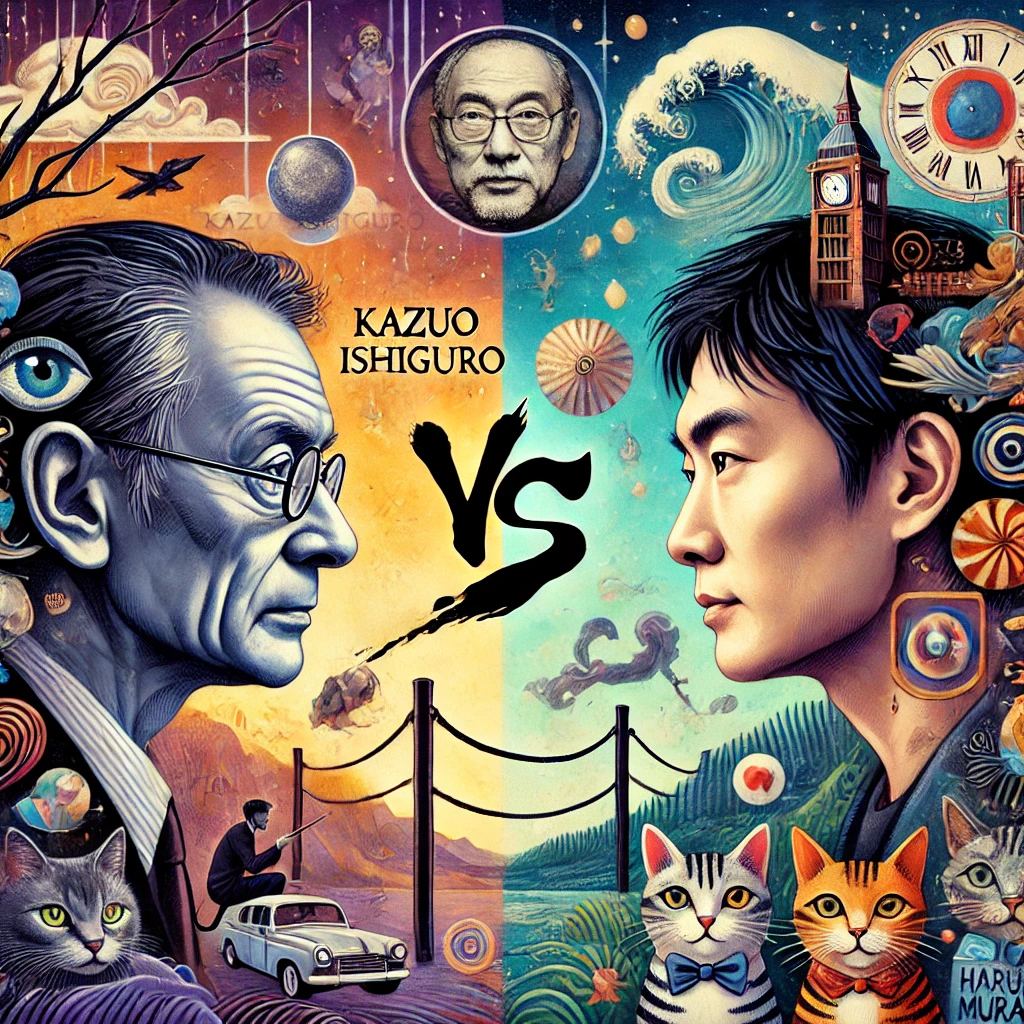Book review: Never let me go - Kazuo Ishiguro
I was recently given 2 books as a gift by a close friend, who is a great fan of Murakami’s. The books in question are “Norwegian woods” by Murakami and “Never Let Me Go” by Kazuo Ishiguro.
The task was to read both of these books, and to validate the said friend’s belief that Murakami,as an author, is far superior to Ishiguro. Being a die-hard Murakami fan, she told me beforehand that “Norwegian Woods” is Murakami’s only story without any magical realism, and probably one of his lesser works, while on the other hand, “Never Let Me Go” is Ishiguro’s finest.

So you see, the balance was already distorted. Comparing Ishiguro’s finest to Murakami’s worst? Only to prove that Murakami was still the better author! Being a fan of neither, but a true friend, I believed what I was told, and picked up “Norwegian Woods” first.
While much of what I felt while I read the book is already lost, for it has been around a month since, I remember the writing style quite vividly. “Norwegian Woods” follows a very level-headed and mature protagonist, with the tone of the book being serious mostly.
It is a story of the past, present and future. Without going into much detail (since this blog is mostly about the second book), the protagonist learns to remember and cherish, while also letting go of the past. He fights his demons, and finally accepts and embraces his present, while on the very last page it is hinted that he is finally looking towards his future.
I felt like death was looming around the corner, throughout the book. And towards the end, it became quite predictable what was about to happen. Nevertheless, I was still distraught when what was supposed to happen, happened.
The sadness that I felt throughout this book made me purchase a whole set of Murakami’s best works. If this is one of his worst books, I expect nothing short of heaven from his best.
I next picked up “Never Let Me Go” by Kazuo Ishiguro, the “wannabe japanese” author, as i was told by my friend. I could instantly see the difference in the writing styles. While Murakami’s was a more somber and mature tone, Ishiguro’s was more childlike.
With this bias already in my mind, I put the book down only after a few pages. But as luck would have it, I had to sit in a hospital for hours the next couple of days and I found this book in my bag. So, I gave the book another try, expecting to be let down. Needless to say, I couldn’t put down the book before finishing it. It was that good.
Being as cautious as I can be about not giving spoilers, I’ll go through the essence of what I went through while I read this gem.
“Never Let Me Go” makes you remember your childhood. It makes you remember what being innocent (that’s right, being and not pretending to be) felt like. And it also highlights how you come to lose your innocence. How you finally come to see this world for what it is, instead of what you want it to be.
In this regard, there is this specific moment in the book where the students prank “Madame” - only to realize that while they could predict how she would react, they weren’t ready for the way it made them, and especially our protagonist, feel.
Like I said above, I found the tone to be child-like. But only after I was engrossed in the book, did I realize that that was how it was supposed to be. Because the tone was child-like, I could feel the innocence of our protagonist. I could really believe that it was a child who was narrating the book.
The book makes you go through a variety of emotions - love, jealousy, hatred, apathy, sympathy, and a plethora of others. There were times when I had tears in my eyes reading the book, only to feel hopeful a couple of pages later. And a few more pages down the line, I would go from being hopeful to feeling completely hopeless.

In particular, I loved the character of “Ruth”. A fighter, a leader, a go-getter. Someone who wanted to belong. Someone who wanted to be validated or accepted by others.
I went from respecting the child she was, to hating the teenager she grew up to be, to slightly understanding, but also feeling apathy towards the adult she became, to finally coming to terms with the good-hearted person she really was, especially towards the end.
I feel there is a “Ruth” inside all of us. All we want is to be accepted and validated. We would like to belong. Many times, I find myself doing things that I normally wouldn’t. Things I do in order to be validated by others.
From laughing too hard to a joke that I didn’t really find funny, just to be a part of the group, to being extremely courteous towards elders, because that’s how I am supposed to behave. Not that there’s anything wrong with this, I just realize while doing these things, that I am not being myself.
Towards the end, the book made me feel grateful for the freedom that I enjoy. It made me understand How the most important things in our lives, we take for granted! How stupid and shallow and narrow-minded we are. How evil we really are.
In summary, “Never Let Me Go” is a masterpiece. While fiction, I found it to be a representation of our current dystopian society. You read that right - Not a “dystopian representation of our current society” but a “representation of our current dystopian society”.
Once I was done reading, I immediately called my friend to let her know that Ishiguro was in no way inferior to Murakami.
To Mr. Murakami, I look forward to reading your best. I have been suggested to read “Kafka on the shore”. I apologize for ever doubting you, Mr. Ishiguro. In my defense, I hadn’t read “Never Let Me Go.”
